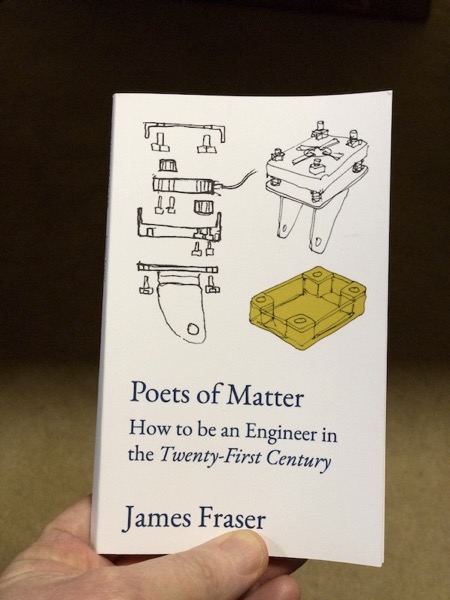Ask any of the chaps, and they’ll tell you.
“Q?”, they’ll say, “Why, he’s a vigorous young buck, springing lightly from one adventure to the next!”
So you might be surprised to hear that, not only am I actually old enough to have a nephew who is himself a father, but that he’s also well established in his career as a design engineer, to the extent that he’s recently published a rather nice little book on the topic.
If you’re thinking about engineering as a career, or a degree course, or an apprenticeship, then you may have some idea of the kind of exams you’ll need to pass and the things you’ll need to know. But what might your life actually be like? Are you basing your expectations simply on the splendid pictures of Isambard Kingdom Brunel standing beside enormous anchor chains? Because if so, you might need a little bit of updating.
James talks about the inspirations and the frustrations, the hard work and the sense of achievement, the old skills and the new tools that might be associated with the noble pursuit of engineering in the modern age. It’s a great guide to what might lie ahead of you if you do decide to go down this path, and the mental attitudes that will help you prepare for it and get the most out of it. I’m biased, of course, but I thought it was very nicely done.
Recommended for anybody you know currently contemplating their future careers.
Go on, buy ’em a copy!

I’ve ordered this. I’m very vaguely considering a career change (currently a librarian) and engineering has been at the back of my mind – loosely bundled with other options, with the common thread being materials. This looks very useful, and should at least make my considerations a little less vague! Thanks for the tip. The book’s title is inspired.